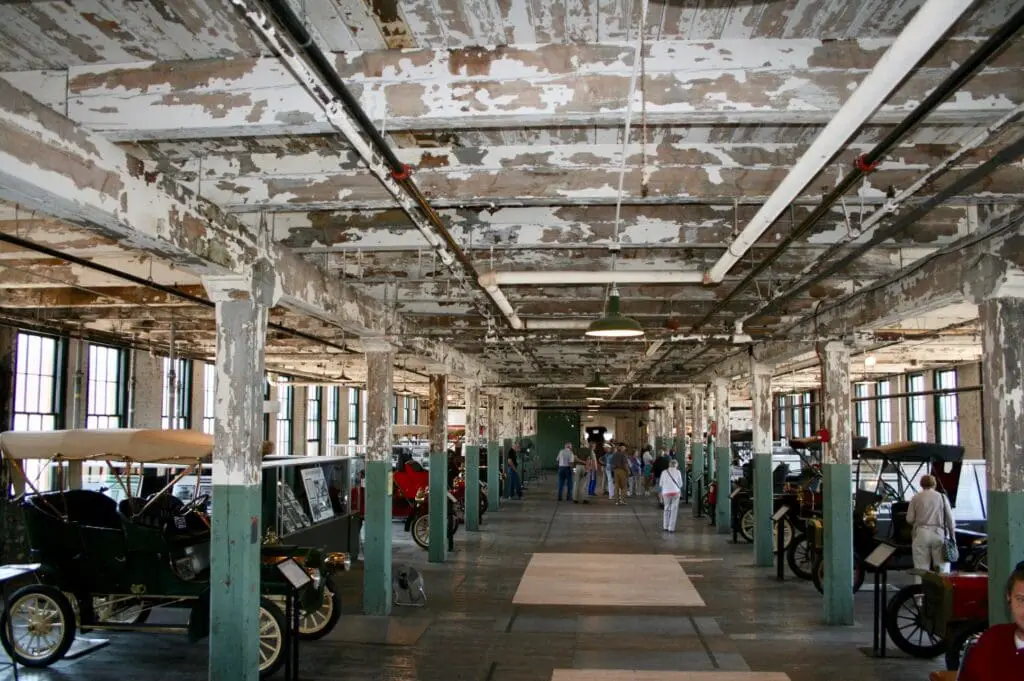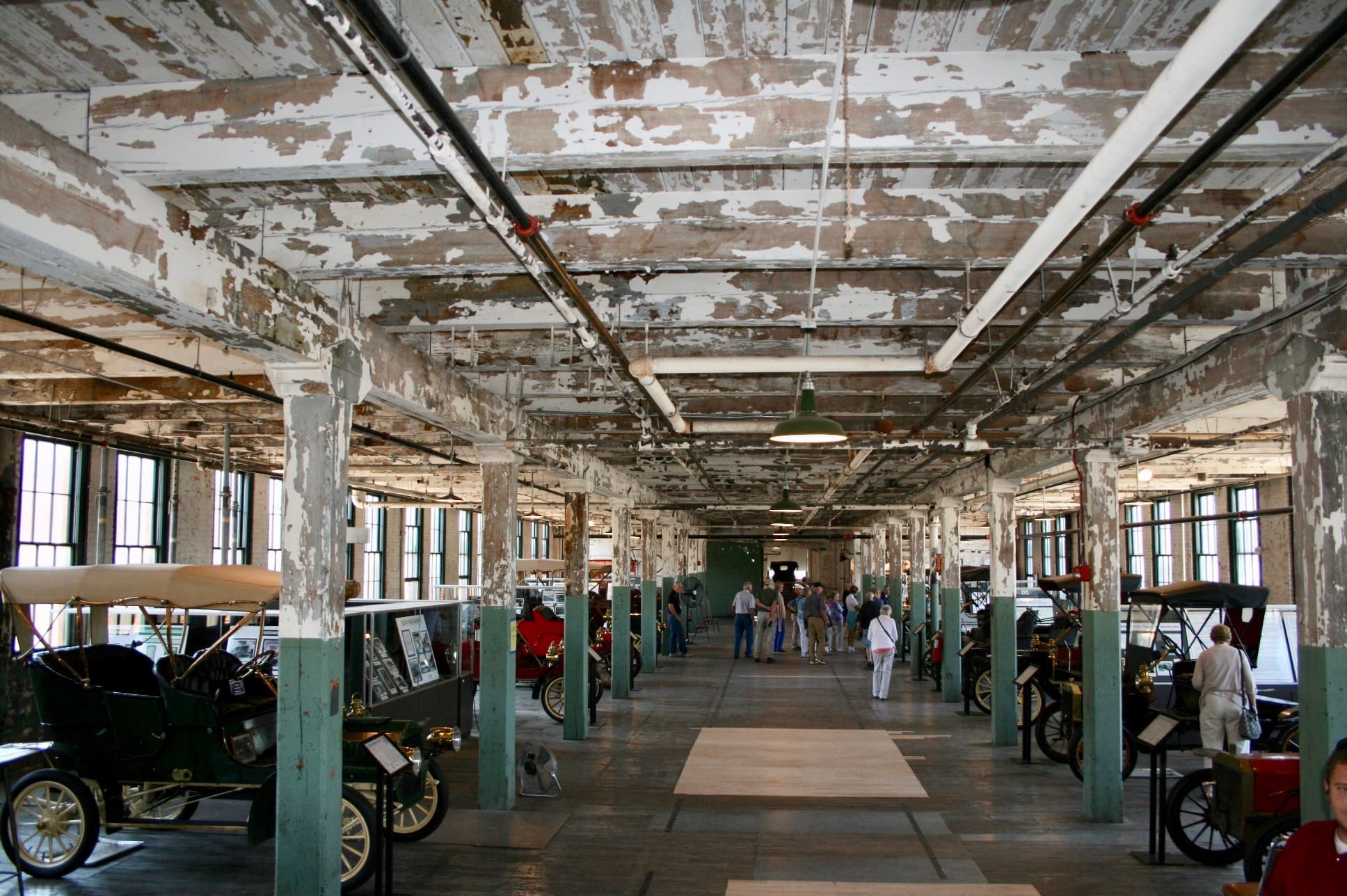Imagine stepping back in time to the early 1900s, where the roaring engines of a new and revolutionary industry were just beginning to rumble to life. In the heart of Detroit, you’d find the Ford Piquette Avenue Plant, a bustling hub of innovation and ingenuity that forever transformed the course of automotive history. This iconic factory not only witnessed the birth of the Model T, but it also played a vital role in shaping the future of the entire automobile industry. From its pioneering assembly line techniques to its unparalleled influence on modern manufacturing, the Ford Piquette Avenue Plant stands as a testament to the relentless pursuit of excellence that has defined the automotive world for over a century.
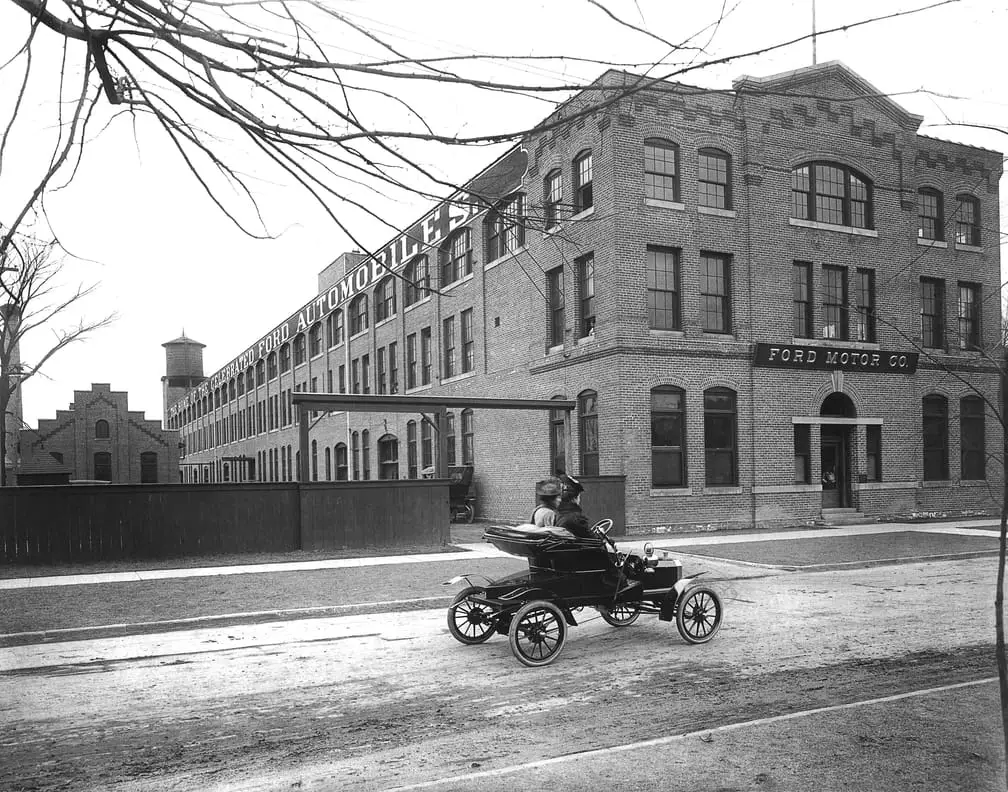
This image is property of www.fordpiquetteplant.org.
Ford Piquette Avenue Plant: An Overview
Located in Detroit, Michigan, the Ford Piquette Avenue Plant holds a significant place in automotive history. As one of the oldest automotive factories in the United States, the plant played a pivotal role in the development and production of the iconic Ford Model T. Its historical significance, impact on manufacturing processes, and the labor relations it witnessed have shaped the automotive industry and transformed the way we live and work.
Historical Background
The Ford Piquette Avenue Plant was built in 1904 by the Ford Motor Company and served as the birthplace of the Model T. At the time of its construction, the automotive industry was in its early stages, and Detroit was emerging as the hub of automobile manufacturing. The plant was initially used to assemble and produce other Ford models, including the Model C and the Model F. However, it is its association with the Model T that truly defines its historical importance.
Plant’s Significance in the Automotive Industry
The Ford Piquette Avenue Plant holds immense significance in the automotive industry due to its role in revolutionizing manufacturing processes and democratizing automobile ownership. The plant was where Henry Ford and his team experimented with various prototypes and innovative production techniques, which laid the foundation for the assembly line method that would later become standard in the industry. This groundbreaking approach enabled Ford to significantly reduce production time and costs, ultimately making automobiles more affordable and accessible to the average consumer.
Birthplace of the Model T: Revolutionizing the Auto Industry
Early Prototypes and the Assembly Line
In the early years of the Ford Piquette Avenue Plant, Henry Ford and his team worked tirelessly to perfect the design of the Model T. They built numerous prototypes, testing and refining different components and features until they achieved a groundbreaking design that would become the hallmark of the automobile industry. The plant provided the ideal space for these experiments and innovations, allowing the team to bring their ideas to life.
One of the most significant breakthroughs that emerged from the Ford Piquette Avenue Plant was the development of the assembly line. Henry Ford realized that by dividing the manufacturing process into smaller, repetitive tasks, productivity could be increased dramatically. This division of labor revolutionized production techniques, enabling the plant to produce a Model T every 24 seconds. The assembly line not only reduced manufacturing time but also made automobiles more affordable for the masses.
Impact on Manufacturing Processes
The introduction of the assembly line method at the Ford Piquette Avenue Plant had a profound impact on manufacturing processes across industries, not just in the automotive sector. By streamlining production and increasing efficiency, the plant set a new standard for mass production. The principles pioneered at the plant laid the groundwork for modern manufacturing processes, shaping the way products are made and improving productivity worldwide.
Moreover, the innovation and advancements in manufacturing techniques facilitated by the plant enabled the automotive industry to meet the growing demand for automobiles. As production costs decreased, consumer prices became more affordable, leading to an increase in automobile ownership and transforming the way people lived and traveled.
Strengthening of the Automotive Industry
The Ford Piquette Avenue Plant played a pivotal role in the growth and strengthening of the automotive industry. The success of the Model T, which was produced at the plant, set the stage for Ford Motor Company’s exponential growth and dominance in the automobile market. The plant’s achievements showcased Detroit’s capabilities as a center of automotive excellence, attracting other manufacturers to the area and establishing the city as the heart of the American automobile industry.
As the demand for automobiles increased, suppliers and ancillary industries flourished, generating employment opportunities and economic growth. The success of the Ford Piquette Avenue Plant and its revolutionary Model T laid the foundation for Detroit’s transformation into the Motor City and helped establish the United States as a global leader in automotive manufacturing.
Societal Impact: Transforming the Way We Live and Work
Affordability and Accessibility
The production innovations pioneered at the Ford Piquette Avenue Plant had a profound impact on society, particularly in terms of affordability and accessibility of automobiles. Prior to the Model T, automobiles were considered a luxury item, affordable only to the wealthy. However, thanks to the assembly line production and cost-reducing techniques developed at the plant, the Model T became increasingly affordable for the middle class.
Henry Ford’s vision was to make a car that every ordinary person could afford, and through the advancements made at the plant, this vision became a reality. The accessibility of automobiles changed the way people traveled and expanded their horizons, opening up new opportunities for leisure, business, and personal growth.
Expansion of the Middle Class
The widespread availability and affordability of the Model T played a significant role in the expansion of the middle class in the early 20th century. As more people were able to purchase automobiles, it created a new class of consumers with increased mobility and economic freedom. The middle class, which had previously relied on public transportation or horse-drawn carriages, now had the ability to travel independently and explore new opportunities.
Owning a car became a status symbol, and the automobile industry became a symbol of progress and success. The expansion of the middle class not only fueled economic growth but also transformed societal dynamics, creating a more mobile and interconnected society.
Rise of the Suburbs
The affordability and accessibility of the Model T, made possible by the innovations at the Ford Piquette Avenue Plant, played a significant role in shaping urban development. With the ability to travel greater distances quickly and conveniently, people began to move away from crowded city centers and into the suburbs. The automobile became a catalyst for suburbanization, changing the landscape of cities and transforming them into sprawling metropolitan areas.
The rise of suburbs brought about a shift in lifestyle, offering more space, privacy, and access to nature. It allowed families to live further away from their workplaces, contributing to the development of residential communities and the need for improved infrastructure such as roads and highways. This rapid expansion of suburbs, fueled by the automobile, had a lasting impact on urban planning and set the stage for future urban development trends.
Changing Workforce Dynamics
The Ford Piquette Avenue Plant not only revolutionized manufacturing processes but also transformed workforce dynamics. The introduction of the assembly line method significantly increased productivity, leading to the need for a larger workforce to meet the growing demand for automobiles. As a result, the plant became a major employer, attracting workers from all walks of life.
The availability of stable employment at the plant, along with the high wages offered by Henry Ford, influenced workforce dynamics and set new standards for labor conditions and compensation. The Ford Piquette Avenue Plant played a pivotal role in establishing the working class as a significant force in the labor movement, inspiring discussions on workers’ rights and fair treatment in the workplace.
Innovation and Technology: Paving the Way for Modern Automobiles
Innovations in Design and Engineering
The Ford Piquette Avenue Plant was a hotbed of innovation in design and engineering. From the early prototypes to the final production models, the plant served as a testing ground for new ideas and technological advancements. Henry Ford and his team were constantly experimenting with different components, materials, and designs to create an automobile that was not only efficient but also affordable.
The success of their innovations is evident in the Model T, which featured numerous groundbreaking design elements. The introduction of interchangeable parts, lightweight materials, and efficient engines set new standards in automotive engineering. These innovations laid the foundation for future advancements in automobile design and engineering, shaping the modern vehicles we see today.
Advancements in Mass Production Techniques
The Ford Piquette Avenue Plant made major advancements in mass production techniques that revolutionized the automotive industry. The introduction of the assembly line method and the division of labor significantly increased the speed of production and reduced costs. The plant’s production of a Model T every 24 seconds was a testament to the efficiency of these techniques.
By optimizing the manufacturing process and eliminating unnecessary steps, Ford Motor Company was able to produce automobiles at a scale that was previously unimaginable. The plant’s advancements in mass production techniques not only set new industry standards but also laid the groundwork for future advancements in various manufacturing sectors.
Standardization of Automotive Parts
One of the key innovations that emerged from the Ford Piquette Avenue Plant was the standardization of automotive parts. Henry Ford realized that by using interchangeable parts, the assembly process could be streamlined, reducing the need for custom-made components. This standardization not only simplified production but also made maintenance and repairs more accessible for consumers.
The standardization of automotive parts had a profound impact on the industry as a whole. It allowed for mass production on a large scale, facilitating efficient assembly and reducing costs. Additionally, it paved the way for aftermarket parts manufacturing, creating a thriving industry that caters to the maintenance and customization needs of vehicle owners.
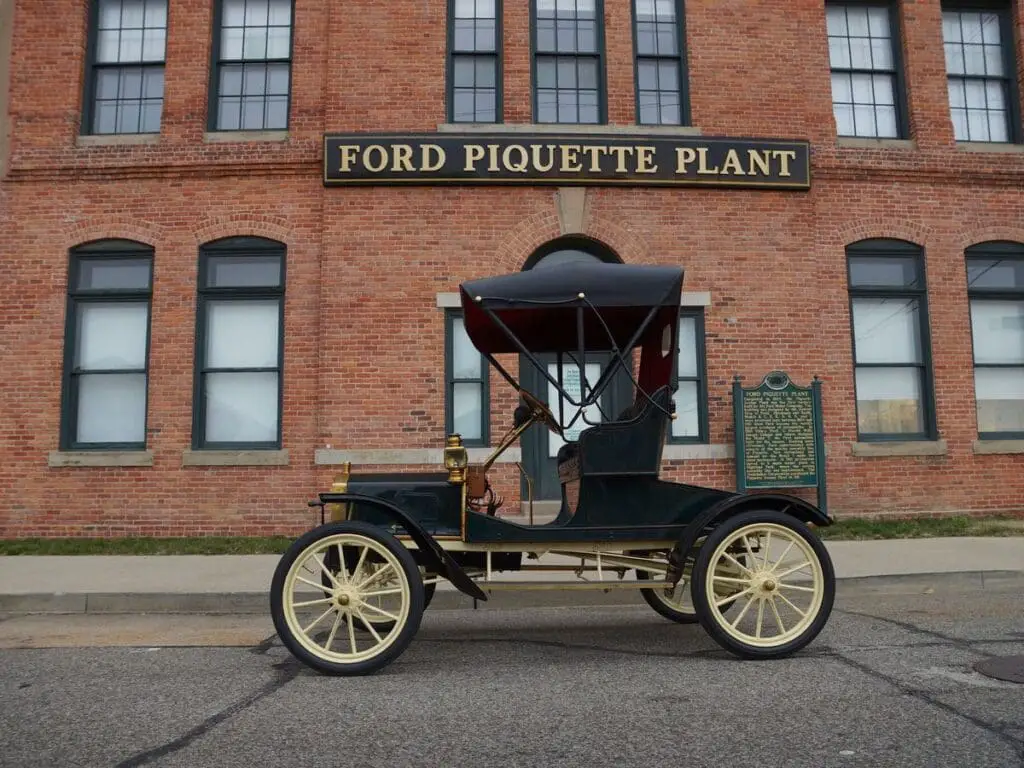
This image is property of hips.hearstapps.com.
Labor Relations and Workers’ Rights: The Ford Piquette Strike of 1910
Overview of the Strike
The Ford Piquette Avenue Plant witnessed a significant labor dispute in 1910, known as the Ford Piquette Strike. The strike was sparked by workers’ dissatisfaction with working conditions, long hours, and low wages. It marked the largest industrial labor dispute in Detroit’s history at that time.
Workers at the plant, inspired by the growing labor movement, formed the “Eight-Hour League” to advocate for reduced working hours. Their demands also included better pay, improved safety measures, and recognition of their right to organize. The strike lasted for several weeks, with workers picketing outside the plant and effectively shutting down production.
Impacts on Labor Relations
The Ford Piquette Strike of 1910 had a profound impact on labor relations in the automotive industry. While the strike itself did not immediately result in all the workers’ demands being met, it created awareness and laid the groundwork for future advancements in workers’ rights. It helped to foster a sense of solidarity among the workers and inspired discussions on fair treatment and improved labor conditions.
The strike also highlighted the need for effective negotiations between labor and management. The events at the Ford Piquette Avenue Plant served as a catalyst for improving labor relations and establishing mechanisms for addressing workers’ grievances. Over time, improvements in labor conditions and the establishment of unions in the automotive industry became a significant part of workers’ rights.
Legacy in Advancing Workers’ Rights
The Ford Piquette Strike of 1910 left a lasting legacy in the advancement of workers’ rights. While the strike itself did not achieve all its immediate objectives, it sparked a larger movement that led to improvements in labor conditions and the recognition of workers’ rights. The events at the Ford Piquette Avenue Plant served as a clarion call for change, paving the way for future developments in workers’ rights and labor relations.
The strike also highlighted the significance of collective bargaining and the power of workers’ solidarity. It shed light on the need for fair wages, reasonable working hours, and safe working conditions. The efforts of the workers at the Ford Piquette Avenue Plant were instrumental in advancing workers’ rights not only in the automotive industry but also in the broader industrial landscape of the United States.
Preservation Efforts: Honoring the Plant’s Historic Legacy
Historic Building Restoration
In recognition of its historical significance, the Ford Piquette Avenue Plant underwent extensive restoration efforts to preserve its original architecture and features. The restoration process aimed to recreate the ambiance of the early 20th century and provide visitors with an authentic experience. Attention was given to retaining the plant’s original layout, including the assembly line and the office areas, to showcase the environment in which the Model T was born.
The restoration efforts at the Ford Piquette Avenue Plant ensure that visitors can immerse themselves in the rich history of the automotive industry and experience the environment that played a pivotal role in shaping it. The preservation of the building itself allows future generations to appreciate the architectural significance and serves as a testament to the achievements of the past.
Museum Development and Exhibits
To further engage visitors and educate them about the plant’s historical significance, the Ford Piquette Avenue Plant has been transformed into a museum. The museum features exhibits showcasing the history of the plant, the development of the Model T, and the impact of the automotive industry on society. Through interactive displays, artifacts, and guided tours, visitors can gain a deeper understanding of the plant’s role in shaping automotive history.
The museum also offers educational programs and workshops for students of all ages. These programs provide an opportunity for students to learn about the innovations and advancements that took place at the plant, inspiring them to pursue careers in science, technology, engineering, and mathematics (STEM). The museum’s commitment to education ensures that the plant’s legacy continues to inspire future generations.
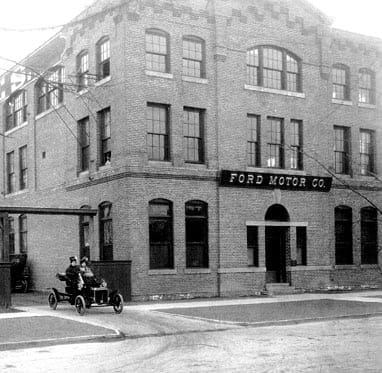
Tourism and Economic Impact: Driving Local Development
Revitalization of Detroit’s Historic District
The restoration and transformation of the Ford Piquette Avenue Plant into a museum has had a significant impact on the revitalization of Detroit’s historic district. The plant’s historical significance, combined with its proximity to other cultural and historical landmarks, has attracted tourists and visitors from around the world. This influx of visitors has breathed new life into the area, generating economic activity and driving local development.
The restoration of the plant and the development of the museum have paved the way for broader urban renewal efforts in the surrounding neighborhood. New businesses, such as restaurants, cafes, and boutique shops, have emerged to cater to the needs of tourists and visitors. The revitalization of Detroit’s historic district, spurred by the tourism generated by the Ford Piquette Avenue Plant, has created a vibrant and thriving community.
Tourism and Educational Opportunities
The Ford Piquette Avenue Plant has become a must-visit destination for automotive enthusiasts, history buffs, and students alike. Its diverse range of exhibits and educational programs offers visitors a unique opportunity to delve into the rich history of the automotive industry. The plant’s transformation into a museum ensures that visitors can learn about the innovations and advancements that took place within its walls.
Tourism centered around the plant also provides economic benefits to the broader community. As visitors explore the area, they contribute to the local economy by dining at local restaurants, staying in nearby accommodations, and shopping at neighborhood businesses. The tourism industry generated by the Ford Piquette Avenue Plant not only benefits the plant itself but also supports the growth and development of other local businesses and attractions.
Economic Benefits to Local Businesses
The Ford Piquette Avenue Plant’s status as a popular tourist attraction has had a positive economic impact on local businesses. The increased foot traffic from visitors to the plant has created opportunities for nearby restaurants, cafes, and shops to flourish. These businesses can cater to the unique needs and interests of visitors, providing them with an authentic Detroit experience.
Additionally, the plant’s transformation into a museum has created job opportunities in the tourism and hospitality sectors. The need for tour guides, museum staff, and maintenance personnel has generated employment and boosted the local workforce. The economic benefits generated by the Ford Piquette Avenue Plant extend beyond the plant itself, supporting the growth and prosperity of the entire community.
Inspiring Future Generations: Education and Outreach
Educational Programs for Students
The Ford Piquette Avenue Plant’s commitment to education is exemplified through its various programs designed for students. The plant offers engaging and informative educational programs that cater to students of all ages. These programs provide an opportunity for students to learn about the innovations, engineering principles, and manufacturing techniques that emerged from the plant.
Through hands-on activities, workshops, and guided tours, students can gain a practical understanding of the plant’s historical significance and its impact on the automotive industry. These educational programs inspire students to develop an interest in STEM fields and encourage them to pursue careers in engineering, design, and manufacturing. By inspiring future generations, the plant ensures the continuation of innovation and creativity in the automotive industry.
Partnerships with Local Schools and Universities
The Ford Piquette Avenue Plant actively collaborates with local schools and universities to further promote educational opportunities. Through partnerships, the plant facilitates field trips for students, providing them with a unique learning experience outside the classroom. The immersive environment of the plant allows students to witness firsthand the engineering marvels and manufacturing advancements of the early 20th century.
The plant’s partnerships with universities also enable the development of specialized research and internship programs. Students studying engineering, history, or related fields can engage in hands-on research projects, contributing to the preservation and interpretation of automotive history. These partnerships foster collaboration and knowledge sharing between academia and industry, furthering innovation and research in the automotive sector.
Promotion of Automotive History
The Ford Piquette Avenue Plant actively promotes the importance of automotive history and its impact on society. Through its exhibits, workshops, and educational programs, the plant aims to raise awareness about the achievements and innovations that emerged from its walls. By highlighting the historical significance of the plant, it encourages a deeper appreciation for the contributions of the automotive industry to technological advancements and societal progress.
The promotion of automotive history also serves as a source of inspiration and pride for the local community. It fosters a sense of identity and connection to the city’s industrial heritage, instilling a sense of civic pride. By embracing its historical legacy, the plant ensures that the accomplishments and innovations of the past continue to resonate with present and future generations.
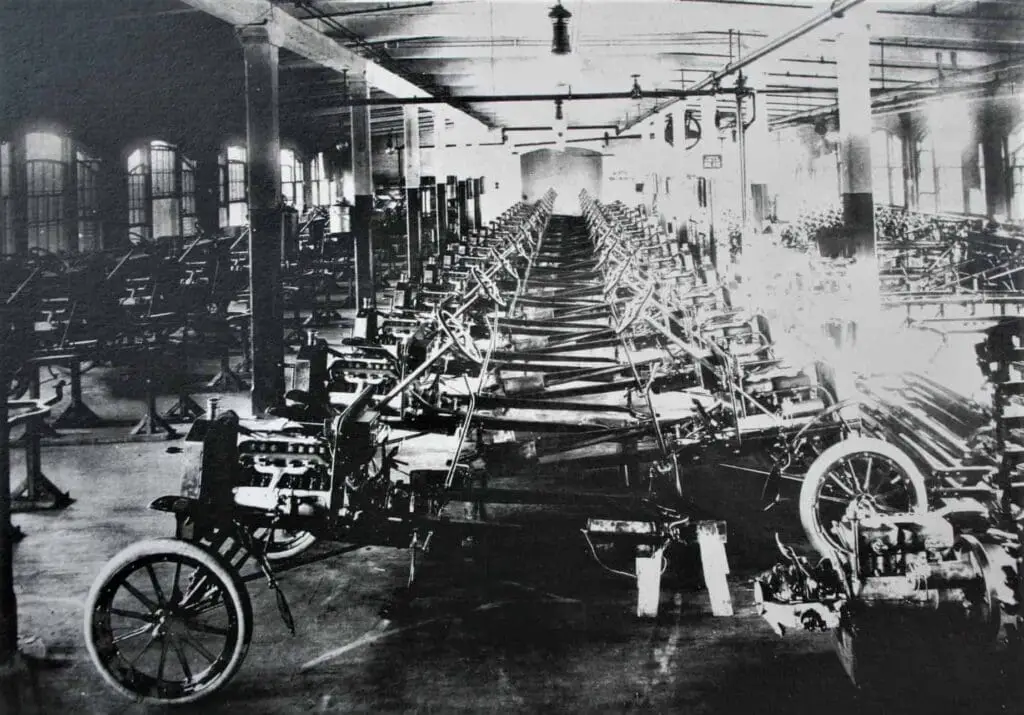
This image is property of journal.classiccars.com.
Celebrating the Model T: Annual Events and Festivals
Model T Day Celebrations
To commemorate the Model T’s impact and celebrate its lasting legacy, the Ford Piquette Avenue Plant hosts annual Model T Day celebrations. These events bring together car enthusiasts, collectors, and the local community to showcase and appreciate the iconic Model T. The day is filled with activities such as vintage car parades, live demonstrations of Model T assembly, and educational talks about the history of the automobile.
Model T Day celebrations provide an opportunity for visitors to witness the craftsmanship and ingenuity that went into producing the Model T. It allows enthusiasts to showcase their own restored Model Ts and share their passion with others. These celebrations foster a sense of camaraderie among car enthusiasts and serve as a reminder of the Model T’s lasting impact on the automotive industry.
Vintage Car Shows and Rallies
In addition to Model T Day celebrations, the Ford Piquette Avenue Plant hosts vintage car shows and rallies throughout the year. These events attract automobile enthusiasts from around the country who gather to showcase their meticulously restored vintage cars. Visitors have the chance to admire a wide range of classic automobiles, including not only Model Ts but also other iconic vehicles from different eras.
Vintage car shows and rallies provide a tangible connection to automotive history. They allow visitors to appreciate the craftsmanship, design, and engineering of vintage cars while fostering a sense of nostalgia. These events showcase the evolution of the automotive industry and its lasting impact on our culture, as well as providing a platform for car enthusiasts to share their knowledge and passion.
Legacy and Continued Influence: The Lasting Impact of the Ford Piquette Avenue Plant
Continued Relevance in Automotive Research and Development
Despite being over a century old, the Ford Piquette Avenue Plant continues to serve as a source of inspiration and influence for automotive research and development. The innovations and advancements that emerged from the plant laid the foundation for modern automobile manufacturing. Concepts such as the assembly line, standardization of parts, and streamlined production techniques pioneered at the plant continue to shape the way vehicles are made today.
The plant’s legacy in research and development is also evident in the ongoing advancements in electric vehicles, autonomous driving, and sustainable mobility. The principles of efficient manufacturing, innovative design, and engineering excellence established at the Ford Piquette Avenue Plant remain relevant in the quest for cleaner, safer, and more efficient transportation.
Historical Significance in Preserving Automotive History
Perhaps the most enduring legacy of the Ford Piquette Avenue Plant is its role in preserving automotive history. The plant’s restoration, transformation into a museum, and educational outreach ensure that the achievements, innovations, and impact of the early automotive industry are not forgotten. By showcasing the plant’s historical significance, it serves as a living testament to the transformative power of the automobile.
The preservation of the Ford Piquette Avenue Plant allows visitors to immerse themselves in the history of the automotive industry, understanding the challenges and triumphs that paved the way for the modern vehicles we know today. It preserves the memory of the individuals who worked tirelessly within its walls and celebrates their contributions to automotive history. The Ford Piquette Avenue Plant continues to inspire and captivate visitors, ensuring that its historical significance is recognized and appreciated for generations to come.
